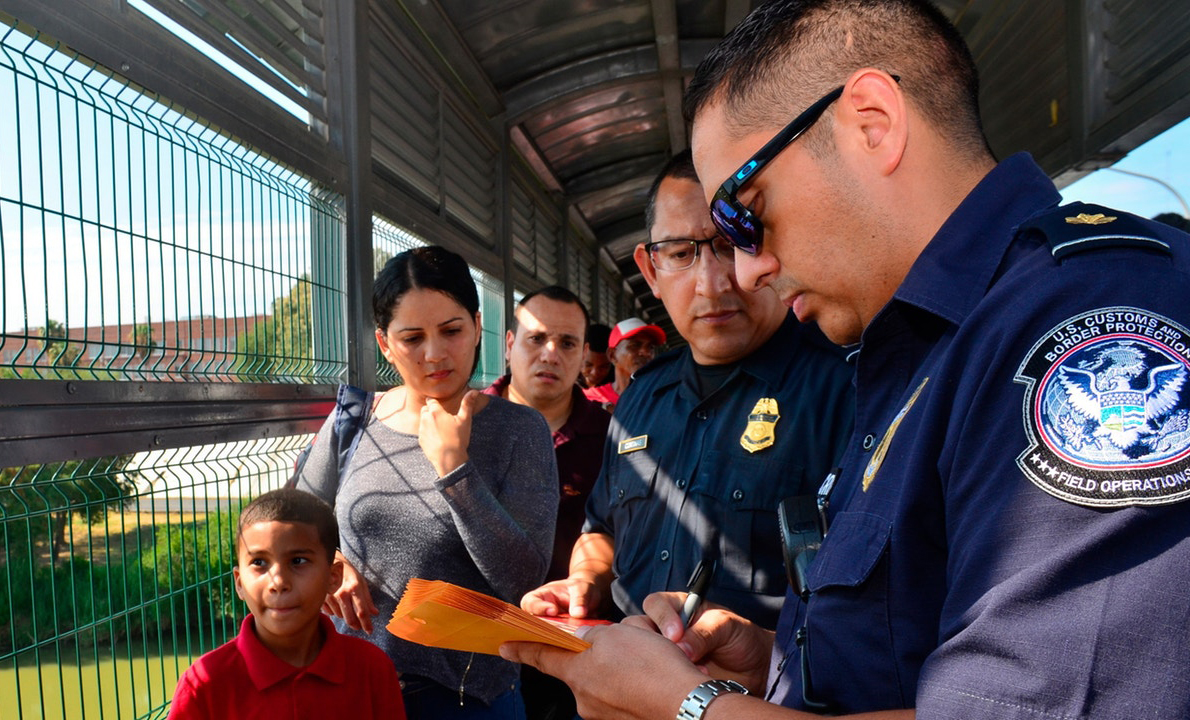by the El Reportero wire services
The Donald Trump Administration enacted a ban that will deny entry visas to legal immigrants who cannot prove they will have medical insurance or the ability to pay for their medical expenses when obtaining permanent residence or green cards in the United States.
Trump issued the presidential proclamation “Suspension of Entry of Immigrants Who Will Financially Burden the United States Healthcare System,” ordering US consular officials to deny immigrant visas to foreigners who want to live in the United States unless “they are covered by health insurance approved ”or can demonstrate that they have“ the financial resources to pay reasonably foreseeable medical costs ”
The order, effective as of Nov. 3, was announced Friday by the White House. This is Trump’s latest measure in his strategy to reduce both legal and irregular immigration.
The proclamation indicates that immigrants will be banned from entering the country unless they acquire health insurance less than 30 days after entering or have enough money to cover any medical expenses.
If you sponsor a green card for a family member, you must sign a strict contract with the US.
The president justified the argued decree that legal immigrants are three times more likely than US citizens to lack health insurance, which makes them a burden on the health system and US taxpayers.
“While our health care system faces the challenges caused by unpaid medical care, the US government is aggravating the problem by admitting thousands of foreigners who have not demonstrated any capacity to pay for their medical expenses, ”Trump said in his proclamation.
Who is affected by the entry ban
The new rule applies to people who apply for immigrant visas from abroad, and not to those who are already on US soil. It does not affect those who are already legal permanent residents, or asylum seekers, refugees or minors.
Doug Rand, an immigration policy expert, co-founder of the national immigration organization Boundless, disaggregated the information in an analysis of the proclamation as follows:
- The decree affects foreigners who apply for legal permanent resident status in a consular office of the State Department and not people who are in the United States and ask for the green card through adjustment of status.
- It would not affect the children of US citizens, but apparently the spouses of US citizens and immediate family members of legal permanent residents.
- It would also affect the parents of US citizens who cannot “demonstrate to the satisfaction of the consular officer that foreign medical care will not impose a substantial burden on the United States health care system.”
“This new immigration ban is based on the same legal authorities as the previous ban on traveling to people from mainly Muslim-majority countries, as well as the asylum ban,” Rand wrote, noting that the measure differs from the final rule on the public charge (Inadmissibility on Public Charge Grounds) as a cause of inadmissibility to the United States, effective as of October 15.
What type of insurance is needed
The required health insurance can be purchased individually or through an employer, and can be short-term or catastrophic illness coverage.
Medicaid coverage does not count. And an immigrant will not be able to obtain a visa if they use subsidies from the Affordable Health Care Act (ACA), better known as Obamacare, to acquire their policy. The federal government pays the subsidies.
“Although legal immigrants are candidates for ACA grants, they would remain in limbo because the proclamation does not consider subsidized coverage insurance,” Larry Leavitt, executive vice president of health policies at Kaiser Family Foundation, a group of insurance experts health, wrote on Twitter.



